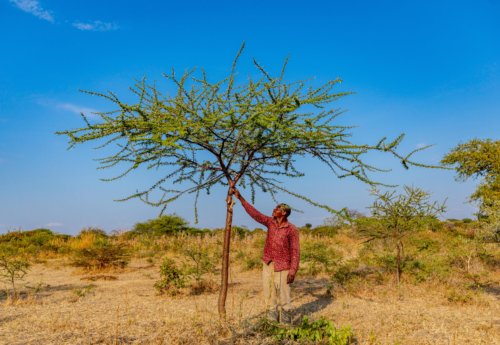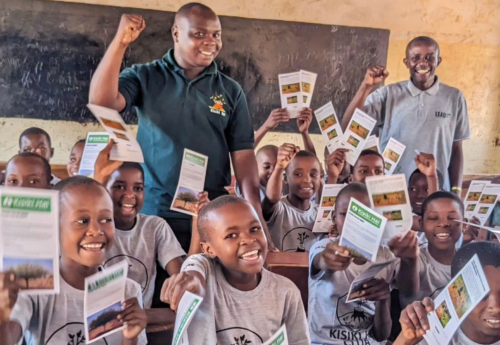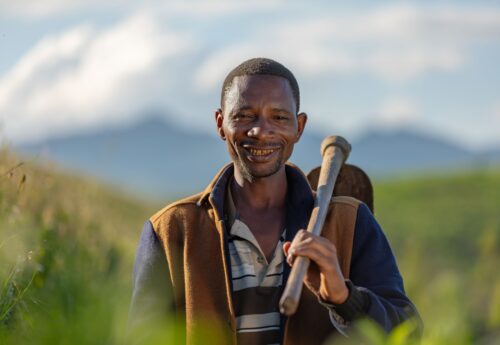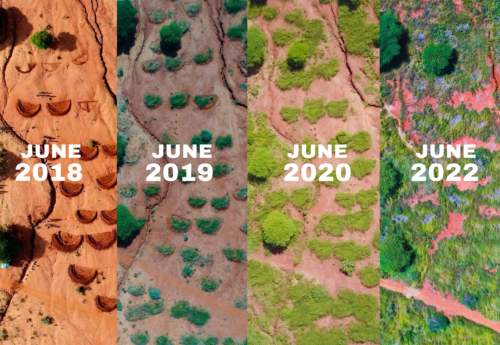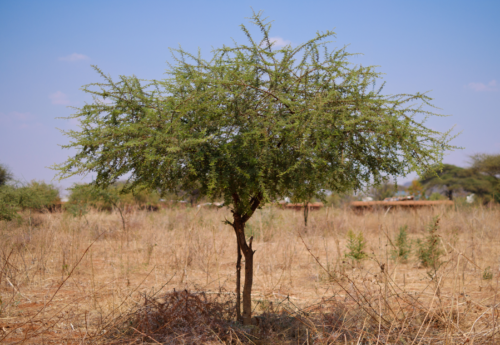
Summary
Similar to the Regreening Dodoma Program, this program seeks to turn barren and dry soil into fertile and green land. Its goal is to reach more than 3,600 households in Monduli district and restore at least 86,400 trees and 440 hectares of rangeland. This is achieved by reversing the process of desertification and degradation of ecosystems through the techniques of Kisiki Hai and Rain Water Harvesting in order to improve livelihoods and climate change resilience. Kisiki Hai, meaning ‘living stump’, is the Swahili name for the English Farmer Managed Natural Regeneration (FMNR), which is a low-cost, sustainable land restoration technique. Second, we train the technique of digging half moon bunds that capture rainwater, which would otherwise wash away over the dry and barren soil. The rainwater is slowed down and stored temporarily in the bund, enabling the water to infiltrate the soil. Seeds that were still present in the soil have started to grow, regreening the bunds and the spaces in between. Further destructive erosion by gullies is prevented and even reversed. Both techniques used in this program will allow subsistence pastoralists inhabiting the most degraded landscapes to restore their pastures.
Duration and Status
Three years from 2021 to 2024
The program is successfully ongoing and we expect to reach our targets by 2024.
Achievements by October 2023
220 Champion farmers trained
3,000+ Households trained and activated
22,000+ Half moon bunds dug
76,500+ Trees regenerated
Partners
The project is supported by the German Erbacher Foundation and implemented by the LEAD Foundation and Justdiggit.


